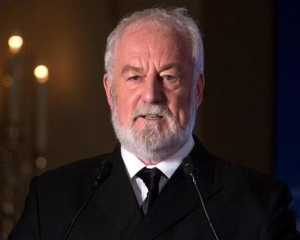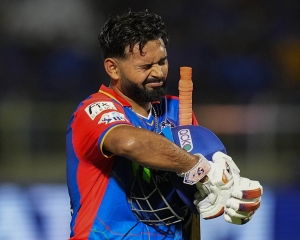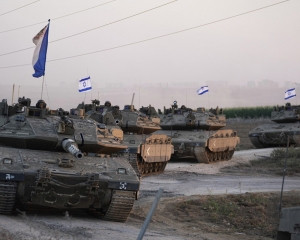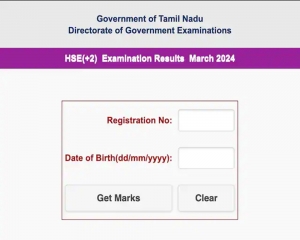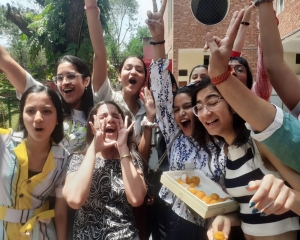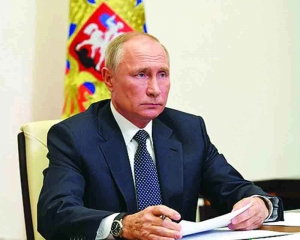India is very keen to weave its ties with Sri lanka without munching too much on China factor. India is also not interested in inviting any other superpower to rein in China. The retreat of seven decades could not be corrected in three years. But three years of Modi’s foreign policy has provided opportunity to gain our lost trust and affections
Prime Minister Narendra Modi’s two-day visit to Sri lanka did narrate a swing in India’s neighbourhood policy. That was his second visit to Sri lanka. First was in 2015. At that time Sri lankan President Mahinda Rajapaksa was tilted towards China. He brought China closer to Indian Ocean further. This time new President of Sri lanka Maithripala Sirisena has better chemistry with Indian Prime Minister Narendra Modi. Both the leaders are trying to develop a new route of bilateral relations. Most of Modi’s critics allege it is merely symbolic and rhetorical which does not augur any meaningful change. At the surface, the fire might not be visible, but the moment we remove the ashes accumulated over the seven decades of the Congress foreign policy, heat is felt from the ashes. It is not merely an invitation as a chief guest of the auspicious occasion of Vesak Day celebrations in Sri lanka, but a new beginning which is based on the understanding of geo-economics. The context will be clearer if the past policy is put in the context.
India-Sri lanka relations were driven by threat perception and internal dynamics. The mutual threat of hurting each other, Sri lanka always perceived India as a great bully which was there to challenge its sovereignty. The internal politics of Tamil Nadu was more dominant while dealing with Sri lanka. The geographical locations, cultural fabrics and geo-economics were subsequently thrown into the dustbin for safeguarding the interests of Tamil Nadu agenda of ethnicity. This was how love and hate of Tamils dictated the bilateral ties of the two nations. Sending peacekeeping force to Sri-lanka and declaring Tamil Tigers as a terrorist organisation following the assassination of Rajiv Gandhi dictated the same formula.
Second, the policy of isolation during the Congress regime provided the great powers to meddle in the Indian subcontinent. Initially America and later on China made rapid strides in the area. India remained a preacher of good practices of world peace without any substance. China used this opportunity to maximise its feat. First it did in Himalayan state and later into the terrain of Indian Ocean which has been popularised as a pearl of springs. Gradually, the space for manoeuvring hard power was not an option for India. Space has been hijacked by China.
If we see the move of Modi in the existing conditions, we find a blending of hard realism with idealism, which could be narrated in the post-modern world as a neo-realistic approach. He is moving with long-term agenda, reaching out to the people of the South Asian countries through the strongest emotional appeals. Strategic commentator C Raja Mohan said that past Indian Government committed “monumental error” in their Sri lanka Policy. According to him, India can rebuild the special relationships with Sri lanka by reclaiming the shared spiritual heritage with that country, recognising its special position in the sacred geography of Buddhism, and acknowledging Colombo’s leadership role in Asia and in the Indian Ocean.
It is well-known fact that China has been trying to dock its nuclear missiles in Sri lanka. It has been developing ports in the blue water near Sri lanka. It is also well-known that the minimum distance between India and Sri lanka is merely 22 km. The Chinese nuclear missiles with such proximity posed serious danger to Indian security. Despite the largest trading partner within the SAARC country, the volume of trade between India and Sri lanka was meagre during the Congress regime. China’s One Belt One Road (OBOR) is moving with a great speed. When Modi was in Sri lanka, China invited 30 countries to participate in OBOR initiative in Beijing. Sri lanka is one of the leading nations, China wants to rope in for the 21st century Silk Route.
The US or any other powers are weighing their own benefits and losses while dealing with China. In such situation, what options do India haveIJ Modi’s foreign policy is not merely dynamic but creating a new wave in the subcontinent. India-Sri lanka is best example of this scheme. Modi is bridging the trust deficit between the two countries. He has been trying to intensify the high-level political engagement with Sri lanka. During the visit of Sri lanka’s PM to India last month, a number of agreements were signed. India has shown great enthusiasm in undertaking the big projects in Sri lanka and decided to complete it on time.
Modi has purposefully visited the central Sri lanka, where Indian Tamils are located. Their identity and political outlook are sharply different from the North-East Tamils, who were eyesore for the lankan Government. They are extremely poor and deprived of state support. Modi has also sought to restore deeper cultural connect between the two nations as part of his effort to strengthen Buddhism. During the Congress regime, Buddhism was not thrust upon as an effective tool of foreign policy. It was Modi who made it a successful venture. While delivering speech he connected Indian feelings to lankan people. He capitalised on the fact that Buddhism is a defining element of Sri lanka national identity and it is right time to reconnect the neglected spiritual identity between the two nations. Modi announced the direct Air India flights from Colombo to Varanasi. It was Sri lankan Buddhism which enriched India. Sri lankan monk Anaganka Dhamapala set up the Mahabodhi Society in 1891.
Buddhist diplomacy is not merely a cultural feat but a geo-strategic stratagem. China is also wooing the Buddhist countries to follow its design. It is doing to safeguard its interests in Tibet. If India wins the heart of Sri lankans, the Chinese flow of power will be duly checkmated. last week Sri lanka did not allow Chinese submarine to dock in Colombo. India recently gifted South Asia satellite for communication to six countries, including Sri lanka. It is our largest trading partner in SAARC, whose port in Colombo receives more than 70 per cent shipments from India. The cultural fabrics will start geo-economics which may result into rapid economic development.
Now the major disputes between India and Sri lanka are fishing rights. Quite often Indian fishermen step in the Sri lankan periphery. This issue has been discussed during Modi’s visit. The ethnic issue of Tamil was also brought into notice. The civil nuclear use was talked about. Many other agenda were discussed. But the success of his visit lies in new insight which he discovered and is consistently working on it.
There has been phenomenal improvement in the bilateral ties between India and Sri lanka. The Tamil factor is losing its overstated orchestration in bilateral ties. India is very keen to weave its ties with Sri lanka without munching too much on China factor. India is also not interested in inviting any other superpower to rein in China. The retreat of seven decades could not be corrected in three years. But three years of Modi’s foreign policy has provided opportunity to regain our trust and affections. Therefore, India and Sri lanka are on altogether different route of bilateral relations that are more indigenous and friendly. It is not the result of power tussle of world politics or under the guidance of superpowers; it is based on mutual benefit and respect. This is the mantra of Modi’s foreign policy, moving through soft power to vital power.
(The writer is Head of the Department of Political Science, Central University of Haryana)













